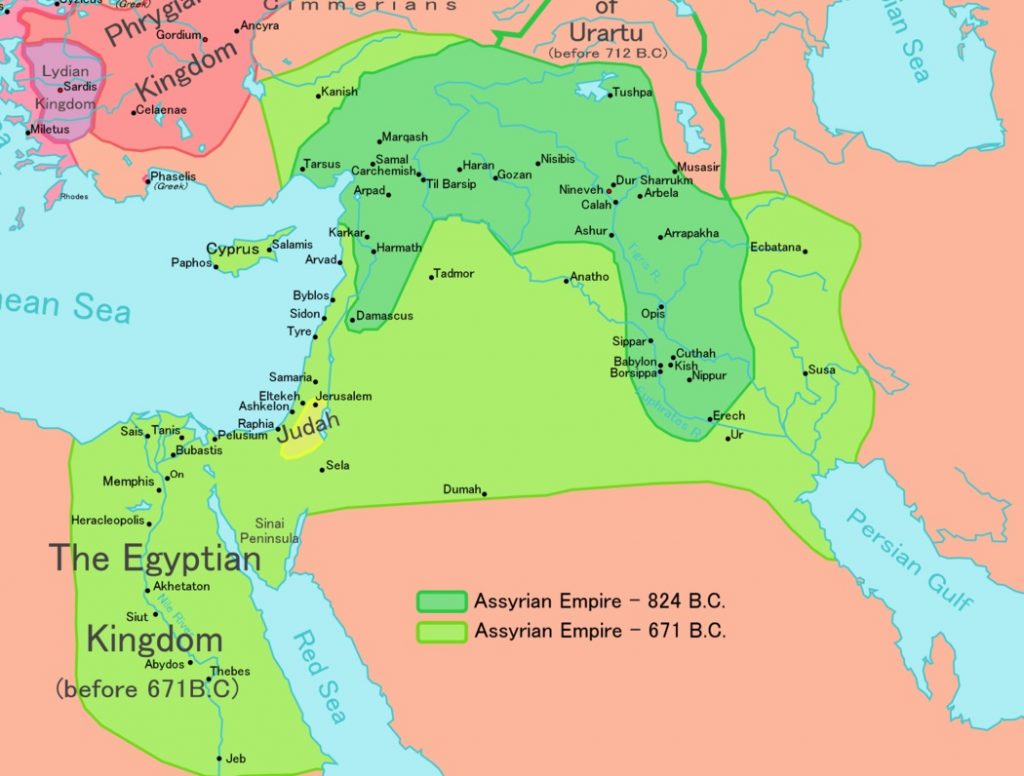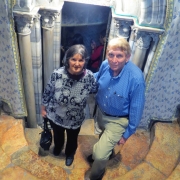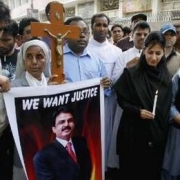The Forgotten Assyrian Christians
By: William J.Murray, First appeared at WND.com
Kurds are Sunni Muslims and Assyrians are Christians, as far as the media and apparently the powers that be in Europe and Washington are concerned. The statements about the two groups both are false.
The Kurds are an ethnic group just as are Germans or Italians. The great majority of Kurds are Sunni Muslim, but in biblical times virtually all Kurds practiced Zoroastrianism. This religion for the most part vanished after the Arab Muslim invasion of Kurdish areas in A.D. 641. There were several revolts by the Kurds even after most were forced to convert to Islam. Regardless of religion, Kurds view themselves as a distinct people.
In northern Iraq today, there are many people of Kurdish origin who are Christians. Christian Kurds are fighting alongside Muslim Kurds in Peshmerga units fighting the Islamic State. There are, however, radical Sunni elements in the Kurdish population that support the Islamic State. There are also Kurds who are atheists, although not publicly.
In Iraq, as is the case in all Muslim-majority nations, the religion of every individual is on his birth certificate and later his ID card. The new Iraqi

Chairman William Murray traveled to Iraq to help with the diaper deliveries and distributions in June.
Constitution, approved by the United States and Europe, forbids Muslims to convert to any other religion – although Christians can of course convert to Islam. The national flag contains the dreaded call of al-Qaida and the Islamic State: “Allah Akbar.”
As with the Kurds, the Assyrians are also a distinct ethnic group, although not treated as such by the West despite their rather high-profile history during Old Testament times. In 721 B.C., the Assyrians captured Samaria and essentially ended the northern kingdom of Israel, carrying off the Israelites as slaves. Later the Assyrians laid siege to Jerusalem. These conflicts and outcomes are recorded in Isaiah, Chronicles and 2 Kings.
Most Assyrians converted to Christianity in the fourth century through evangelism, along with the Armenians. Then, despite occupation by Arab Muslims during the same period when the Kurds were conquered, the great majority of Assyrians did not convert to Islam. However, that does not mean that all Assyrians are Christians, just as all Kurds are not Muslims.
One Assyrian Christian leader I met had in his office a plaque listing all the kings of Assyria, beginning with the nomadic king Tudiya, although some historians view king Ushpia as the founder of the city of Assure. The Assyrians developed trade roots and eventually a powerful army that can be historically documented.During my June inspection of the Diapers for Refugees program I direct in Iraq, I visited Dohuk, a larger city which is north of the Nineveh Plain. As the Islamic State (ISIS) advanced in 2014 and drove Christians from their homes in the Nineveh Plain, many fled to towns in Dohuk Province and into the city of Dohuk itself. About 5,000 displaced Christian families are temporarily housed there. Part of my mission was to determine the feasibility of expanding the Diapers for Refugees and Christmas for Refugees programs to Dohuk.
There has been historic persecution against the Assyrians because of their ethnic and religious difference from the Arabs who conquered them. In 1915 tens of thousands of Assyrians where killed; entire Assyrian villages were wiped out by the Ottoman Empire. During this time armed Muslim Kurds, Chechens and Circassians joined the Ottomans in the slaughter of Christians. Thousands of Assyrian women were taken for forced marriages and as concubines.
After the First Gulf War, a protected area was established for the Kurds, but not so for the Assyrians and other minorities who attempted to revolt. The result was even more killings and persecution, this time by the Saddam Hussein regime.
 There were 2 million Assyrians in the northern area of Iraq before the First Gulf War. Today their numbers have fallen to less than 200,000. The city of Dohuk, which was 90 percent Christian in 1960, is now 90 percent Muslim, and although church towers still stand, Christians are under siege once more.
There were 2 million Assyrians in the northern area of Iraq before the First Gulf War. Today their numbers have fallen to less than 200,000. The city of Dohuk, which was 90 percent Christian in 1960, is now 90 percent Muslim, and although church towers still stand, Christians are under siege once more.
The Assyrian people are not unified despite the persecution they have suffered. There are four major Assyrian political parties, with two parties holding seats in the Kurdish parliament and three holding seats in the Iraqi parliament. Both bodies reserve five seats for Assyrians, and the elections are by list.
One major Assyrian party desires independence, as the Kurds desire, while the other holds that being a part of the political process in Iraq will offer Assyrians protection.
There will be no lasting “protection” for the Assyrians remaining in Iraq because they have never been recognized by the West as a distinct ethnic group in the way the Kurds have. A “no fly zone” was created by the United States to protect the Kurds after the First Gulf War. No such protection was offered the Assyrians, probably because the group is majority Christian. Under both Bush presidencies and the Obama presidency, the United States allowed the persecution of Christians in Iraq for fear of American forces being labeled “Crusaders.”
[su_button url=”http://christmasforrefugees.org/c4r1/”]Celebrating Christmas with Christian children who escaped the Islamic State[/su_button]
Many Assyrians had relatives in the United States, and since the First Gulf War the Assyrian population in the United States has grown from 60,000 to an estimated 600,000. Hundreds of thousands of Assyrians have fled to secular Syria only to find themselves under attack by Islamic rebels backed by Saudi Arabia and the United States.
President Trump’s administration has no apparent strategy in dealing with the Kurds and the Assyrians other than to furnish money, weapons and training to the Kurdish Peshmerga to fight the Islamic State. It does not appear that there has been any thought given to the Kurdish and other Iraqi minority situations in northern Iraq past the defeat of the Islamic State.
The arming of the Kurds has caused tension with NATO ally Turkey and has caused fear in the hearts of the other minorities such as the Assyrians. What will all those weapons be used for by the Kurds after the defeat of the Islamic State?
Because the United States under the Obama and Trump administrations trained and armed a major military force for the Kurds, a policy must now be put into place to deal with the aftermath and to protect other ethnic groups in northern Iraq – including the Assyrians.








Leave a Reply
Want to join the discussion?Feel free to contribute!